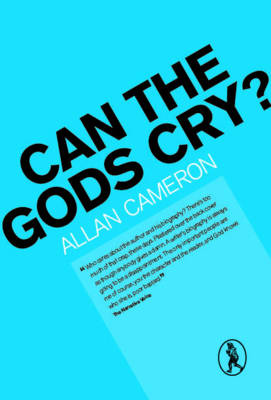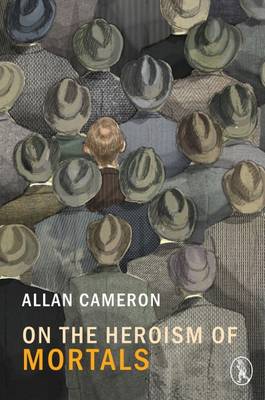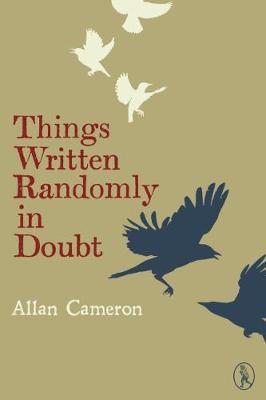Vagabonds
3 primary works
Book 8
With one exception, these short stories were written for this collection, and they tentatively look at different themes such as compassion, passivity and their opposites, which are not, of course, original themes, as none exist. The stories are told in different keys, and some characters appear in more than one story. The subject matter also shifts from the social to the political, and the tone becomes increasingly pessimistic. An Algerian immigrant worker in Italy invents a novel way to redistribute wealth, a female academic finds the path to success to be less difficult than she expected, a high-flyer in the financial markets perceives the glories of a selfish existence, a dying writer considers how he abandoned relationships to follow his art, a dead man rejects the tediousness of heaven, a thug is haunted by his selfish instincts, an essayist pronounces and an authors kills off his character. The plot in one short story distinguishes it from all the others: A Dream of JusticeA" is the scenario for a one-state solution in Israel-Palestine, and examines how this might play out.
This, it is suggested, is not just a least worstA" solution; it is also the only one in which people can go through the process of rediscovering their common humanity, albeit a process that is long and generational. The Middle East also appears in the form of guest workers and the Secret WarA" in Oman. Cameron attempts in some of these stories to question the current conformist role of the writer and intellectual in Western society. Certainly since the Enlightenment and, more particularly in England since the Civil War more correctly called a revolution, the writer has been a dissident in society.
This, it is suggested, is not just a least worstA" solution; it is also the only one in which people can go through the process of rediscovering their common humanity, albeit a process that is long and generational. The Middle East also appears in the form of guest workers and the Secret WarA" in Oman. Cameron attempts in some of these stories to question the current conformist role of the writer and intellectual in Western society. Certainly since the Enlightenment and, more particularly in England since the Civil War more correctly called a revolution, the writer has been a dissident in society.
Book 11
Opening The Heroism of Mortals is like opening a box of intellectual firecrackers. The stories ricochet between the comically absurd, the minutely observed, the inevitability of heartbreak. Cameron examines tiny details, using his prose as a microscope: simple acts become ominous and complex, entire universes are revealed. The Heroism of Mortals peers into the little details of our lives and studies their chaos and tragedy. A soldier in the red army wants to impress his girlfriend and sparks off a tragic series of events. A couple decide to have a day out and both their lives are changed forever - and a new art movement is born. The gift of a hat demonstrates man's humanity to man. From living statues to domestic abuse in leafy Kelvinside, this collection is endlessly inventive. Fictions unfold within fictions, stories tumble into one another, lives collide in unpredictable ways and all is executed with wry and dark humour. Cameron is playing, and with dangerous toys: politics, ethics, God, art - and us, the readers.
Eclectic, a master of techniques, Cameron writes stories that are laugh-out-loud witty and mischievous but betray, almost despite themselves, warmth and genuine humanity. The Heroism of Mortals is serious, funny, and utterly contemporary, dancing on the faultlines of our modern world and lives.
Eclectic, a master of techniques, Cameron writes stories that are laugh-out-loud witty and mischievous but betray, almost despite themselves, warmth and genuine humanity. The Heroism of Mortals is serious, funny, and utterly contemporary, dancing on the faultlines of our modern world and lives.
Book 14
A work in three parts, Things Written starts with aphorisms in "How Not to Be a Ruminant", shifts to essays in "Weights and Counterweights", and concludes with poetry in "By the Metre". Some arguments appear in more than one section, and include nationalism, class, free will, religion, literature and the arts, but the theme of human relationships runs through the entire book, and is most closely examined with reference to the ideas of Martin Buber in a long essay entitled "Cats and Dogs, and Other Things We Cannot Understand". The back cover carries the following: "WARNING: This is a non-genre product and end-users may encounter forms and ideas to which they are allergic. Vagabond Voices Publishing Ltd, its board of directors, shareholders, parent company and/or subsidiaries advise end-users that they read this book entirely at their own risk."


